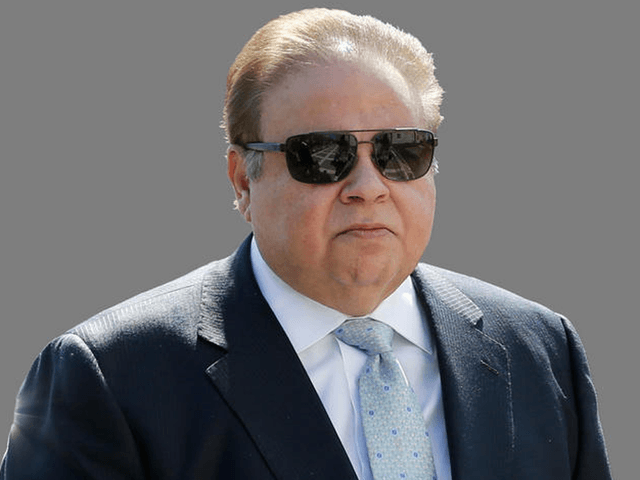The defense team representing Dr. Salomon Melgen in his Medicare fraud trial is trying to persuade a federal jury in Florida their client’s practice of overbilling the Department of Health and Human Services by a factor of three for his administration of the drug Lucentis was simply part of his “innovative efforts to help patients.”
How the jury responds to Melgen’s defense when it renders its verdict, expected to come after the trial ends later this month, will be an early indication of the potential outcome of his second trial for public corruption, charges on which he and Senator Robert Menendez (D-NJ) were both indicted in 2015.
On Tuesday, the first day the defense presented its case, they called Dr. Michael Tolentino, a retinal specialist from Lakeland, Florida, as their first witness.
Tolentino “admitted he had never met the 62-year-old retinal specialist or reviewed any of the work he did at his four clinics in West Palm Beach, Wellington, Delray Beach and Port St. Lucie,” the Palm Beach Post reported:
But, he said, he knew Melgen had trained under the late Dr. Charles Schepens, a revered ophthalmologist often described as the “father of modern retinal surgery.” Schepens worked with his father, Dr. Felipe Tolentino, at a ground-breaking Harvard-affiliated eye research institute in Boston, he said.
Through those relationships, Tolentino said, he understood Melgen’s motivations. Rather than turn away patients who had been told their vision loss was irreversible, Schepens preached that no medical problem was hopeless.
“He believed medicine was an art, that research was an art,” Tolentino told the federal jury. “We should do everything we can do to help our patients.”
“Techniques that other less creative doctors might criticize as unconventional, crazy or just plain wrong should be explored if there is any chance they will help patients, he said, summing up Schepens’ credo. It was one he said propelled him to spearhead research that revolutionized the treatment of wet macular degeneration, a disease that slowly robs the elderly of their sight,” the Post reported:
The way Melgen administered Lucentis has gotten him in trouble with federal health regulators and also plays a key role in the criminal case. It is also part of a separate corruption case Melgen faces in New Jersey with his longtime friend, U.S. Sen. Robert Menendez. The powerful Democrat tried to help Melgen in his battle with federal regulators in exchange for campaign donations, gifts and free trips, federal prosecutors in New Jersey claim in the case that is expected to go to trial in the fall.
Tolentino’s testimony is to bolster Melgen’s attorneys claims that federal prosecutors here are punishing the doctor for his innovative efforts to help patients. Two of the nation’s leading retinal specialists, who testified for the prosecution last month, blasted Melgen’s techniques and his treatment methods.
“Melgen is represented [in the Medicare fraud trial] by Matthew I. Menchel of Kobre & Kim LLP and by Kirk Ogrosky and Murad Hussain of Arnold & Porter Kaye Scholer LLP,” Law360.com reported:
The government is represented by Acting U.S. Attorney Benjamin G. Greenberg and Assistant U.S. Attorneys Roger H. Stefin, Carolyn Bell and Alexandra Chase.
The case is USA v. Melgen, case number 9:15-cr-80049, in the U.S. District Court for the Southern District of Florida.
Both Kirk Ogrosky and Murad Hussain are high-powered attorneys at Arnold & Porter Kaye Scholer, one of the most prestigious law firms in the country.
Melgen has already paid Arnold & Porter Kaye Scholer “about $5 million to represent [him] in his unsuccessful legal battle with the U.S. Department of Health & Human Services,” according to the Post.
Melgen’s attorney Menchel told the jury that “Dr. Melgen actually ended up losing money for using Lucentis.”
“Dr. Melgen is out of pocket $5 million,” Menchel said.
The math behind Menchel’s assertion is hard to follow, and the jury’s verdict may hinge on whether they understand and agree with Menchel’s claim, or the starkly opposite view of Melgen’s billing practices presented earlier in the trial by FBI analyst Jennifer Minton.
The Post reported on Wednesday:
When the U.S. Supreme Court two weeks ago refused to hear Melgen’s appeal in his long-running dispute with federal health regulators, it dashed his hopes of recouping millions he repaid Medicare when it claimed he wrongly used one vial of the pricey drug Lucentis to treat as many as four patients, a practice known as multi-dosing.
But federal prosecutors, who claim Melgen bilked Medicare out of as much as $105 million by multi-dosing, misdiagnosing and mistreating scores of elderly patients, said millions more are at stake.
The high court’s decision means Melgen won’t be able to get back the $8.9 million he repaid Medicare for multi-dosing patients at clinics in West Palm Beach, Wellington, Delray Beach and Port St. Lucie in 2007 and 2008. But, Medicare officials also want the wealthy, politically-connected retinal specialist to repay another roughly $32 million for multi-dosing patients from 2009 to 2013.
“Melgen’s attorneys . . . [Menchel and Ogrosky] . . . argued that Melgen’s practice of multi-dosing didn’t cost the Medicare program a dime. Had Melgen bought separate vials of Lucentis for each of his patients, the agency would have reimbursed Melgen roughly $2,000 for each one,” the Post reported:
But, prosecutors countered, the practice was lucrative for Melgen. Instead of buying separate vials of Lucentis for three or sometimes four patients, he bought one. But he was reimbursed as if he bought one for each patient.
That means if he used one vial to treat three patients, instead of getting back roughly $2,000 for a single vial, he got back about $6,000. If he used it to treat four patients, he got nearly $8,000.
Melgen’s trial is “expected to last another two weeks,” according to the Post.
The public corruption trial of Melgen and Sen. Menendez is scheduled to start in a New Jersey federal court in the fall.

COMMENTS
Please let us know if you're having issues with commenting.